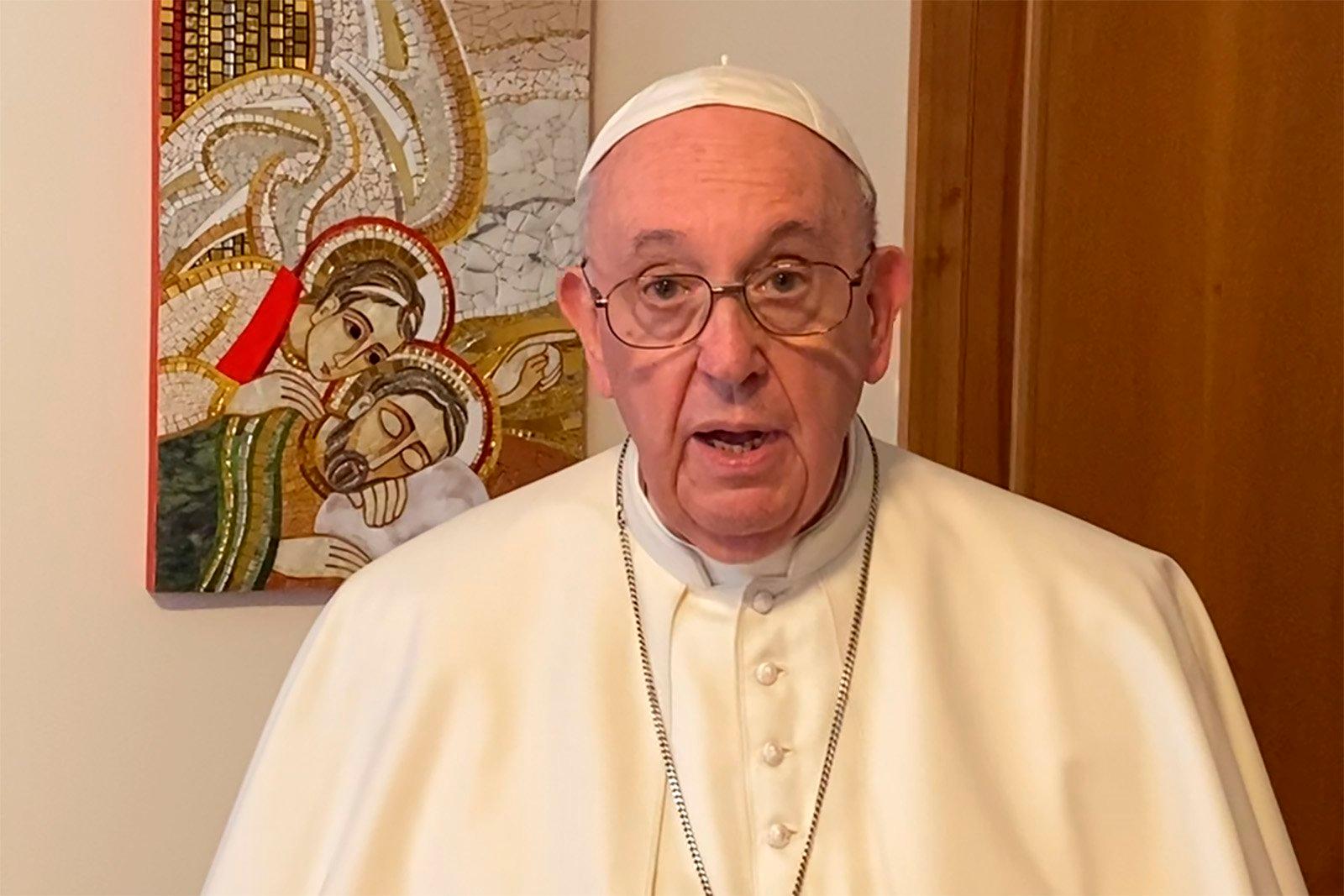ROME — With a sense of responsibility, commitment and concern for the environment and for the poor, people who are young adults today may be the last generation able to ensure a healthy future for all the Earth’s inhabitants, Pope Francis said.
“Today our mother Earth is groaning and warning us that we are approaching dangerous thresholds,” Pope Francis said in a video message Oct. 2 to young adults meeting in Assisi, Italy, and connected online as part of the Economy of Francesco project.
“You are perhaps the last generation that can save us; I am not exaggerating,” the pope told them.
The young economists, entrepreneurs, scholars and scientists have been working online in international groups with older experts for more than 18 months, studying agriculture and employment, peace and ecology, finance and development in the search for ways to make the economy better for more people and for the environment.
Urging the young people to draw on their “creativity and resilience,” Pope Francis prayed that they would use their gifts and knowledge “to right the wrongs of the past and direct us toward a new economy that is more inclusive, sustainable and supportive.”
The importance of the young people’s work is more obvious than ever, he said.
“The COVID-19 pandemic has not only revealed to us the profound inequalities that infect our societies: it has amplified them,” he said. “Since the appearance of a virus from the animal world, our communities have suffered a great increase in unemployment, poverty, inequality, hunger and exclusion from necessary health care.”
“Over the past two years, we have been confronted with all our failures in caring for our common home and family,” he said, a past and present where too little attention and energy is devoted to cooperation, solidarity and to the relationship between human beings and the rest of nature.
“The sick economy that kills stems from the assumption that we are owners of creation, able to exploit it for our own interests and growth,” the pope said.
But the pandemic “reminds us that we have been called to care for the goods that creation gives to all; it reminds us of our duty to work and distribute these goods in such a way that no one is excluded,” he said. “Finally, it also reminds us that, immersed in a common sea, we must embrace the need for a new fraternity.”
“This is a favorable time to feel anew that we need one another, that we have a responsibility toward one another and toward the world,” Pope Francis said.
Living in kinship with one another and caring for the earth, he said, means learning “fairer ways to sell and distribute goods and more responsible behavior when we consume.”
“With our gaze fixed on Jesus, we will find the inspiration to design a new world and the courage to walk together toward a better future,” he said, putting kinship at the center of the economy.
Pope Francis urged the young people to be courageous: “Do not be discouraged: Let yourselves be guided by the love of the Gospel, which is the spring of all change and which urges us to enter into the wounds of history and rise again.”














